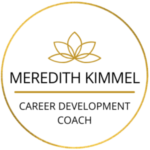Summer vacations offer more than just a break from the daily grind; they present a valuable opportunity for reflection and planning. As you step away from your regular routine, you can gain fresh perspectives on your career, reassess your goals, and strategize your next moves.
Every time I go away on my summer vacations, I’m reminded that there is a big, vast world out there beyond the bounds of my everyday bubble. I love exploring new cities, trying new foods, and meeting new people. I always think, “what would it be like to live here?” Anyone who knows me on a truly personal level, would tell you that it wouldn’t surprise them if I moved to Spain or Portugal.
Summer travel offers a reset and a fresh perspective on how you are living your life. Take the time when you are away to find this awareness. Embrace it and enjoy.
Here are some tips on how to use your summer vacation to reflect and plan your next career step, and I will discuss each in further detail below:
- Embrace the Power of Reflection
- Identify Your Career Aspirations
- Conduct a SWOT Analysis
- Set SMART Goals
- Develop an Action Plan
Embrace the Power of Reflection
Taking time to reflect is crucial for career growth. Use your vacation to disconnect from work and immerse yourself in activities that bring you joy and relaxation. Whether it’s lounging on the beach, hiking in the mountains, or exploring a new city, give yourself the mental space to unwind and reflect.
During this time, think about your career journey so far. What have you accomplished? Are there any challenges have you faced? What skills have you developed? Reflecting on these questions can help you identify patterns and insights that might not be apparent in your day-to-day routine.
Be sure to make notes or voice recordings so you can revise your routine when you get back home.
Identify Your Career Aspirations
Vacations provide the perfect setting to dream and envision your ideal career path. Take some time to think about your long-term aspirations. Where do you see yourself in the next five to ten years? What roles or industries excite you? What impact do you want to make in your career?
Write down your thoughts and ideas in a journal or notebook. This process of externalizing your dreams can clarify your vision and provide a sense of direction. It’s also a great way to capture fleeting thoughts and ideas that might otherwise be forgotten.

Conduct a SWOT Analysis
A SWOT analysis (Strengths, Weaknesses, Opportunities, Threats) can be a powerful tool for career planning. Use your vacation to conduct a personal SWOT analysis to assess your current career position.
- Strengths: What are your key strengths and skills? What do you excel at in your job?
- Weaknesses: What areas need improvement? Are there skills or knowledge gaps you need to address?
- Opportunities: What opportunities are available in your industry or field? Are there emerging trends you can capitalize on?
- Threats: What challenges or obstacles could hinder your career progress? How can you mitigate these threats?
By analyzing these factors, you can develop a strategic plan that leverages your strengths, addresses your weaknesses, and takes advantage of opportunities while managing potential threats.
When we work together, I provide my clients with a worksheet to conduct the SWOT analysis. They find it truly beneficial and eye-opening.
Set SMART Goals
Setting SMART (Specific, Measurable, Achievable, Relevant, Time-bound) goals is an effective way to translate your reflections and plans into actionable steps. Use your vacation to outline clear, achievable goals for your career.
For example, if you’ve identified a skills gap, your goal might be to enroll in a relevant online course by the end of the summer. If you’re considering a career change, your goal could be to research potential industries and network with professionals in those fields over the next six months.
SMART goals provide a structured framework that helps you stay focused and motivated, turning your career aspirations into tangible outcomes.

Develop an Action Plan
Once you’ve set your goals, create an action plan to achieve them. Break down each goal into smaller, manageable tasks and establish a timeline for completing them. This step-by-step approach can make even the most ambitious goals seem attainable.
For instance, if your goal is to transition to a new industry, your action plan might include tasks like updating your resume, attending industry events, reaching out to potential mentors, and applying for relevant positions. An action plan keeps you organized and accountable, ensuring steady progress toward your career objectives.
Conclusion
Summer vacations are more than just a time to relax; they’re an opportunity to reflect, dream, and plan. By embracing reflection, identifying your aspirations, conducting a SWOT analysis, setting SMART goals, and developing an action plan, you can use your summer break to strategically plan your next career move. This balanced approach not only enhances your professional development but also ensures you return to work with renewed purpose and direction.



